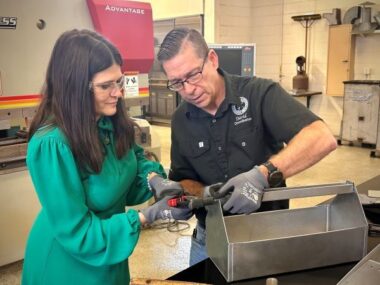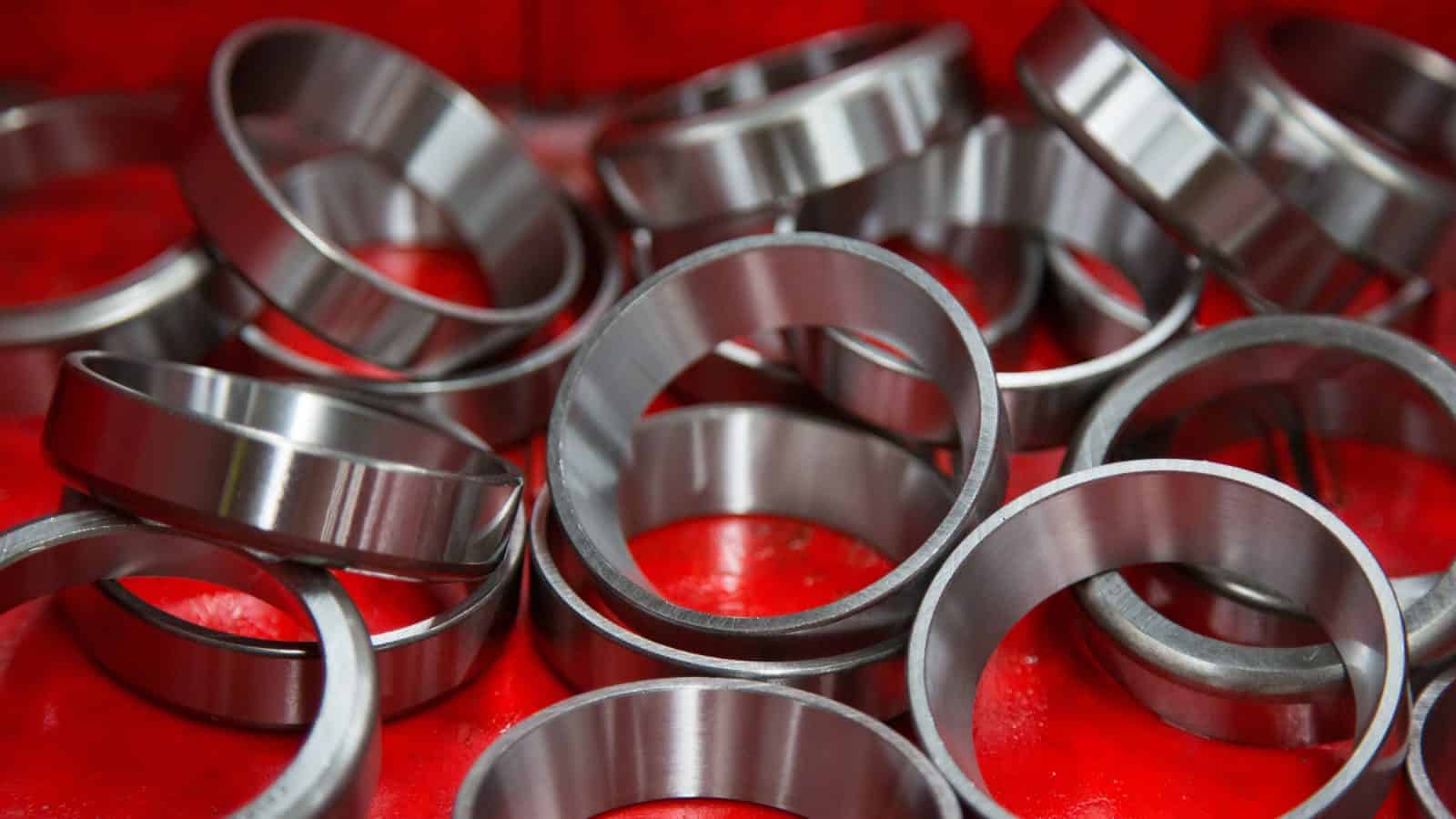NAM Shop Talk Series: Meet Rep. Haley Stevens

Oakland County, Michigan, is a powerhouse for American industry. With its concentration of Tier 1 auto suppliers, this district doesn’t just manufacture cars; it helps fuel the nation’s economy.
- “It truly is the county that keeps the world on wheels,” said Rep. Haley Stevens (D-MI), who was born and raised in Rochester Hills and represents Michigan’s 11th Congressional District in the House of Representatives.
- Rep. Stevens sits on the House Committee on Education and the Workforce, the Science, Space and Technology Committee, where she serves as the ranking member of the Research and Technology Subcommittee, and the Select Committee on Strategic Competition with the Chinese Communist Party. She also co-chairs the Manufacturing Caucus and is a member of the Democratic Manufacturing Group. She understands the vital role this region plays in the national economy and has made it her mission to support and strengthen its manufacturing base.
Personal connection: Rep. Stevens’ journey with manufacturing began early in her career when she served as chief of staff on the U.S. Auto Rescue Task Force under the Obama administration to address the automotive industry crisis in 2008.
- “We were able to secure the auto industry and make sure that automobiles were going to be made in Michigan for generations to come,” she said. “It was a team effort between the federal government, the administration, our union laborers and state and local stakeholders.”
- “It was gratifying to work on an initiative that made life better for so many in the communities I grew up in.”
For Rep. Stevens, the experience has served as a guiding star for her approach to crafting legislation that benefits manufacturers, workers and communities alike.
CHIPS and Science Act: One of Rep. Stevens’ crowning achievements in Congress is her work on the CHIPS and Science Act. This legislation has sparked nearly $400 billion in semiconductor-related investments, from new fabs to supply chain capabilities.
- “I fully believe the legacy of the CHIPS and Science Act can be summarized by a simple fact: the United States is on track to produce 20% of the world’s cutting-edge chips, including those powering the AI economy, right here in America by 2030, up from 0% at the start of this decade,” she said.
- But for Rep. Stevens, this wasn’t just about numbers; it was about securing America’s competitive edge in a rapidly evolving global market.
Building the workforce of tomorrow: Rep. Stevens knew that investments in technology alone wouldn’t be enough. That’s why she spearheaded the CHIPPING In Act of 2022, a crucial part of the CHIPS and Science legislation, to ensure that American workers are trained and ready to fill the jobs created by this tech boom. For her, it’s not just about creating jobs—it’s about building careers and futures in communities like the one she represents.
Message to the next generation: Rep. Stevens wants students to know that the best of manufacturing is yet to come. She encourages students to seek out training opportunities, whether at high schools, community colleges or universities, because well-paying jobs are waiting to be filled.
- “Whether you’re interested in hands-on work or designing the next big thing, there’s a place for you in this sector,” she said.
A bipartisan approach: Rep. Stevens understands that true progress often requires collaboration. Asked by the NAM who she would partner with if she were to start a manufacturing company, the representative said it would be Rep. Mike Gallagher (R-WI), who is known for his work on defense issues.
- She notes that together they would build a parts supplier company that leverages digital technology and remanufacturing principles to serve aerospace, defense and automotive industries—a reflection of her forward-thinking and bipartisan approach to solving America’s manufacturing challenges.
What’s next: As Rep. Stevens looks to the future, she is committed to one overarching goal: securing the future of American manufacturing.
- “As we’ve seen over the past few years, outsourcing manufacturing doesn’t work out and isn’t in our best interest,” she points out. “Whether making vehicles or medical supplies, we need to make sure we have the capacity to do that here in the United States.”
- “If we can shore up American manufacturing, I think that would be a pretty good legacy—hopefully I’ve got years ahead of me to make that happen.”
Only at the NAM: Shop Talk is a new series that aims to help you get to know the personal connections, insights and priorities for policymakers who impact our industry.
